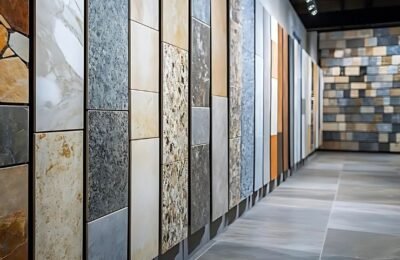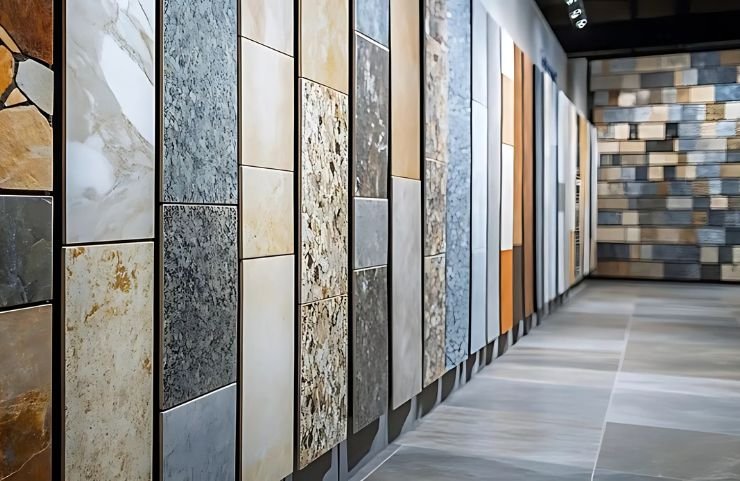Introduction
Mumbai, the bustling metropolis and financial capital of India, is not just known for its skyscrapers and vibrant culture; it’s also a significant player in the granite manufacturing industry. Granite, a natural stone celebrated for its durability and aesthetic appeal, has become a staple in residential and commercial construction. The city’s strategic location and well-developed infrastructure have made it a hub for granite production and trade. Granite Manufacturing In Mumbai
AADI GRANITE’s Role in the Industry
AADI GRANITES specializes in sourcing high-quality granite from various regions across India, ensuring a rich selection of colors, patterns, and textures. The company not only focuses on local varieties but also imports exotic stones from around the world, providing its customers with unparalleled choices. This diversity allows them to meet the unique demands of each project, whether it’s a luxurious residential space or a large commercial development.
Innovative Manufacturing Processes
At the heart of AADI GRANITE’s success is its commitment to advanced manufacturing processes. The company employs cutting-edge technology and machinery to ensure precision and efficiency in every stage of production. From quarrying to cutting and polishing, each step is meticulously managed to uphold the highest standards of quality.
- Quarrying: AADI GRANITE collaborates with ethical quarries that adhere to sustainable practices. This commitment ensures that the granite sourced is not only beautiful but also responsibly extracted.
- Cutting and Finishing: The facility is equipped with state-of-the-art cutting machines that allow for intricate designs and custom sizes. Their skilled craftsmen then polish the slabs, enhancing the natural beauty of the stone while ensuring durability.
- Quality Assurance: Quality control is paramount at AADI GRANITE. Each slab undergoes thorough inspections to detect any imperfections, ensuring that only the best products reach the market.
The Granite Industry Landscape in Mumbai
- Historical Background: The granite industry in Mumbai dates back several decades, growing from small local businesses to a bustling sector. The city’s strategic location and access to ports have facilitated trade, making it a hub for granite sourcing and distribution.
- Current Market Trends: Today, the demand for granite is soaring, driven by urbanization and the booming construction sector. With architects seeking unique designs, the variety of granites available has expanded, catering to both local and international markets.
Types of Granite Produced
- Local vs. Imported Granites: Mumbai offers a blend of local and imported granites. While local varieties are known for their durability and aesthetic appeal, imported granites provide exotic colors and patterns that cater to high-end projects.
- Popular Colors and Patterns: Some of the most sought-after granite colors in Mumbai include black, white, grey, and shades of red and green. Patterns can range from speckled to swirling designs, providing ample choices for homeowners and designers alike.
The Manufacturing Process
- Quarrying of Granite: The first step in granite manufacturing involves quarrying, where large blocks of granite are extracted from quarries. This process requires careful planning to minimize environmental impact and ensure safety.
- Cutting and Polishing: Once extracted, the granite blocks are transported to factories where they are cut into slabs. Advanced cutting machines are employed, followed by polishing to achieve a smooth finish. This is where the granite truly begins to shine!
- Quality Control Measures: Quality control is paramount in granite manufacturing. Each slab undergoes rigorous inspections to check for defects, ensuring that only the best products reach consumers.

FAQs
1. What are the main uses of granite?
Granite is commonly used for countertops, flooring, and as building material due to its durability and aesthetic appeal.
2. How is granite different from marble?
Granite is an igneous rock, making it harder and less porous than marble, which is a metamorphic rock. This difference affects their uses and maintenance.
3. What are the best types of granite for kitchen countertops?
Popular choices for kitchen countertops include Absolute Black, Ubatuba, and Blue Pearl due to their durability and resistance to staining.
4. How do I choose a granite supplier?
When selecting a supplier, consider their reputation, product range, customer service, and adherence to quality standards.
5. What are the environmental impacts of granite mining?
Granite mining can lead to habitat destruction, water pollution, and excessive waste generation. Sustainable practices are essential to mitigate these effects.
Conclusion
In conclusion, granite manufacturing in Mumbai is a vital component of the city’s economy and construction industry. With a rich history, diverse offerings, and a commitment to sustainability, the sector is well-positioned for future growth. As technology advances and demand increases, Mumbai’s granite industry will continue to thrive.



